By Capt. Michael Stover, P.E., R.S., M.SAME, USPHS
Before the fall of 2020, the 600 residents of Chamhawi, located in the center of Tanzania, Africa, largely relied on the river that flows through the village for their drinking water needs. This same river was used as the primary source for drinking water for livestock, for washing clothes, and for other domestic purposes.
Due to the high levels of contamination from fecal bacteria and other water-borne organisms, infant mortality and gastrointestinal illnesses have been prevalent in the community for generations. Moreover, women of Chamhawi fetched water daily, using cups to slowly fill 20-l buckets they would hoist on their heads and walk up to 500-m back to their homes, taking a large amount of time each day.
This challenging situation all changed when Engineers Without Borders USA (EWB) first began its relationship with the Village of Chamhawi. Led by EWB’s Boston Professional Chapter, volunteers visited the village in August 2019 to discuss prospects of developing a water source for the community.
After that initial visit, I began leading an EWB team to raise funds and design a safe, reliable drinking water source for the community. The initial plan was to design and construct a borehole in the summer of 2020 and outfit it with a hand pump to provide immediate, yet limited access (due to the effort of pumping) for all members of the village. Work was to take place during a planned implementation trip, but the COVID-19 pandemic determined otherwise. Instead, we made the decision to pivot from planning an in-person implementation trip in 2020 to relying on local contacts in the village to assist the Chamhawi water project in remotely managing the borehole construction and implementing this first phase of support.
While this decision came with its own challenges (early morning construction coordination calls, construction deviances from the EWB design that needed to be corrected, and maintaining a safe workplace on site in the midst of the pandemic), a successful borehole was drilled, disinfected, and placed into use in November 2020. The same month, EWB-Boston Professional Chapter also remotely coordinated training for the village to develop its own Community-Based Water Supply Organization to successfully manage the new water system.

PLANNING CONSTRUCTION
The new borehole was outfitted with an available hand pump that came from an earlier EWB project in another community, and the village began water service collections in February 2021.
Once the borehole was constructed and placed into use, our team moved to initiate design of the next phase of the project, which constituted a solar panel array, a solar pump, a water storage tank and tank stand, and a dual water tap stand. The Chamhawi Water Project Team worked diligently to develop plans, specifications, and a bid package for the construction in the spring of 2022. A contractor was selected (New Hope Tanzania) and construction was strategically scheduled to begin at the same time that an in-person implementation trip was planned: June 2022.
This EWB implementation trip took place during a 10-day period. While on site, our team members staked out locations for the proposed facilities, inspected the construction, tested the continuity of the solar panel electrical connections, and corrected minor deficiencies in construction as they arose.
In addition to the technical expertise provided, the Boston Professional Chapter also provided refresher training for the Community-Based Water Supply Organization in the village to build capacity and ensure competency to operate and maintain the improved facilities successfully. Additionally, EWB-Boston Professional Chapter provided water, sanitation, and hygiene training to the nearby Idilo Elementary School where children from the village of Chamhawi attend classes. This training included practical instruction on basic hygiene, importance of hand washing, and why river water is often contaminated and unsafe to drink.
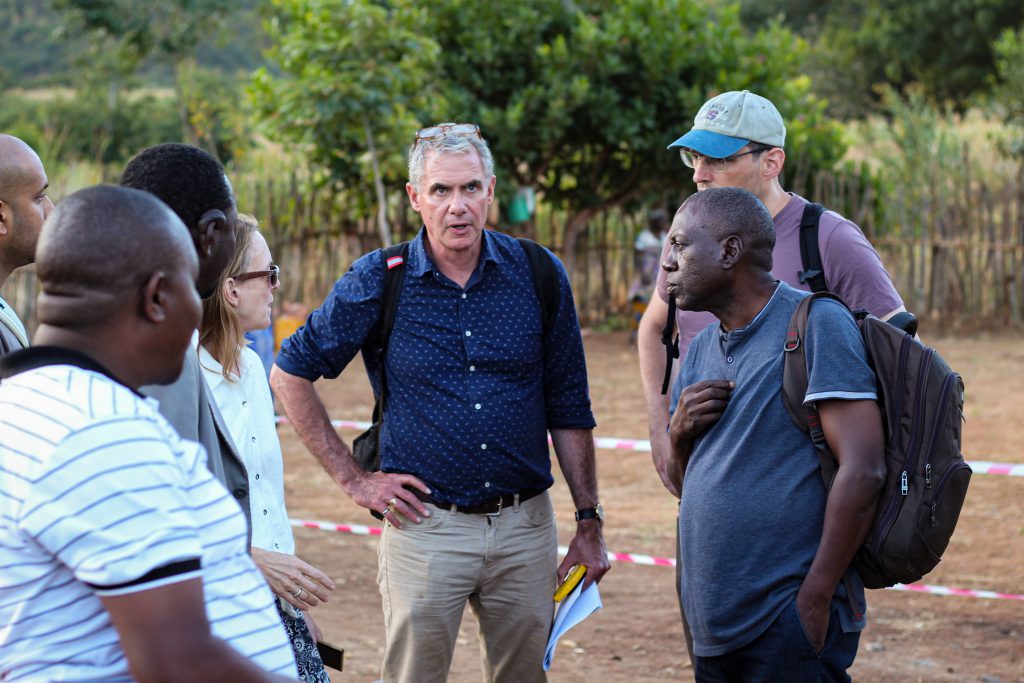
CONTINUED COMMITMENT
By the time the implementation trip reached its end, the construction of the Chamhawi Phase 2 facilities was nearly complete, with a functioning solar panel and solar pump, an erected water storage tank and tank stand, and plumbing for a dual tap stand. Immediately after we returned home, the tap stand was completed, the system was disinfected, and the community was able to enjoy the improved access to safe drinking water by the end of June 2022—and without operating a hand pump, but rather, turning on a faucet.
EWB-Boston Professional Chapter will continue to assess the performance of the Community-Based Water Supply Organization over the course of the next two years to assess the sustainability of the operations and determine if the community is ready to move on to a potential third phase, which would involve design and construction of a distribution system with an elevated storage tank and tap stands at strategic locations within the village for enhanced access to safe, reliable drinking water.
Providing access to safe, clean drinking water is a vital engineering contribution that can help enable communities to thrive; so, too, is ensuring that water infrastructure systems put in place are consistently operable and sustainable by local residents.
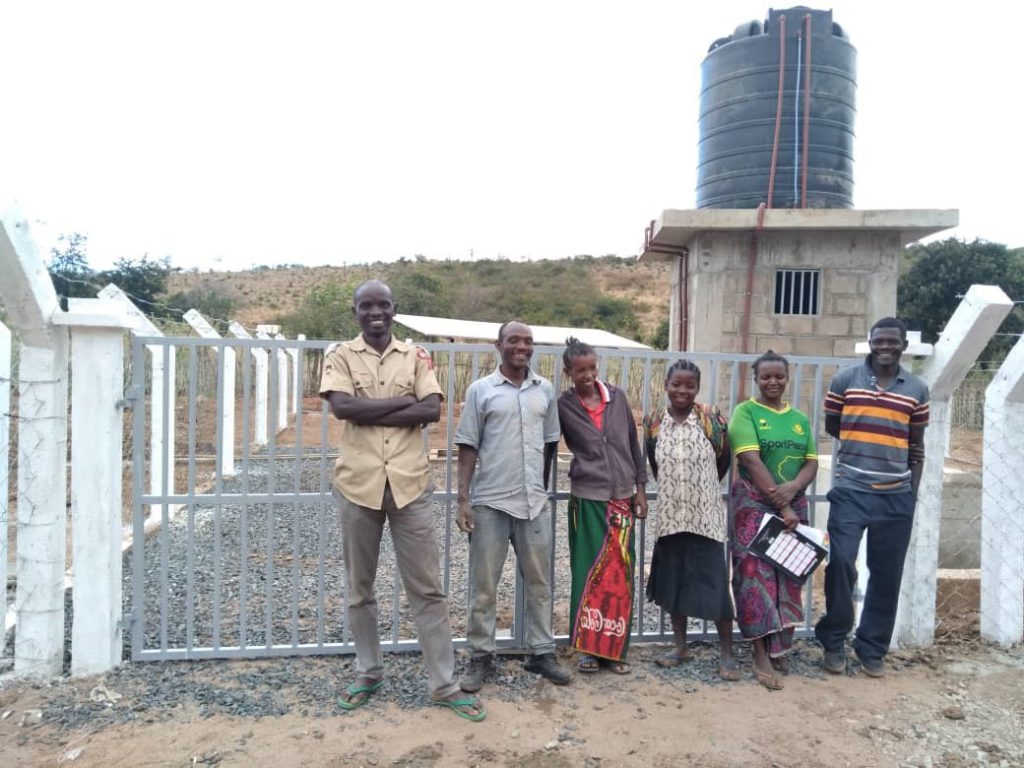
SUPPORT ABROAD, AND AT HOME
Engineers Without Borders USA was officially founded in 2002, at the University of Colorado-Boulder. Today, the organization, through thousands of volunteers, provides high impact engineering support around the world to empower communities to meet their basic human needs.
Projects supported by the organization include water and sanitation, energy and other infrastructure systems, agriculture, structural needs, disaster response, and education. Importantly, the engineering solutions not only aspire to be environmentally sustainable, but sustainable over the long term by the local community in terms of operation, maintenance, and affordability.
Engineers Without Borders USA responds to requests for engineering support through one of its three programs: the International Community Program, the Engineering Service Corps, and the Community Engineering Corps.
Projects in the International Community Program utilize volunteer support and guidance for the full life cycle of the work, from the first needs assessment to implementation, monitoring, evaluation, and training for long-term operation and maintenance.
The Engineering Service Corps provides consulting services rather than physical construction; the group offers professional expertise of volunteers to organizations in the international development sector.
Within the United States, the Community Engineering Corps (a partnership with the American Society of Civil Engineers and the American Water Works Association) allows for sharing technical expertise to communities that are unable to easily retain or afford engineering services. Examples include providing water access in the Navajo Canyon.
For more information, visit www.ewb-usa.org.
Related Posts
-
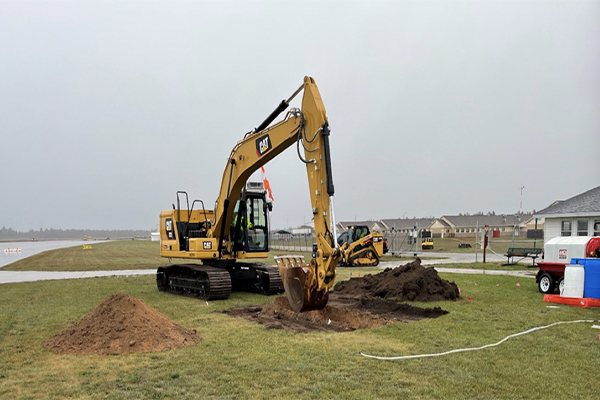
Eliminating PFAS Leaching at Camp Grayling
At Camp Grayling, a novel colloidal-activated carbon material was used as a horizontal barrier on a site where aqueous film-forming foam had previously been discharged to prevent PFAS from leaching into groundwater. -
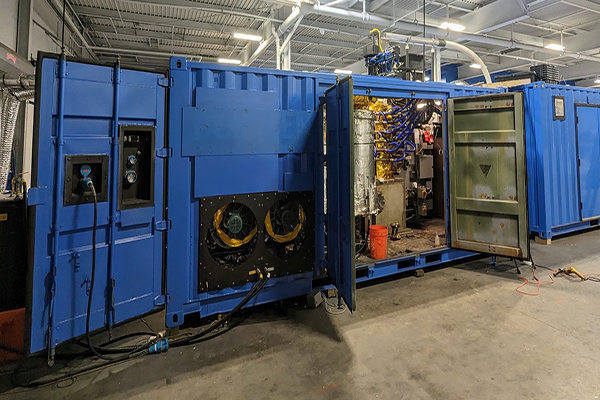
Reaching Sustainability Goals with Waste-to-Energy
The U.S. Army Engineer Research & Development Center’s Construction Engineering Research Laboratory is working to develop small-scale waste-to-energy systems that will advance installation sustainability and waste management. -
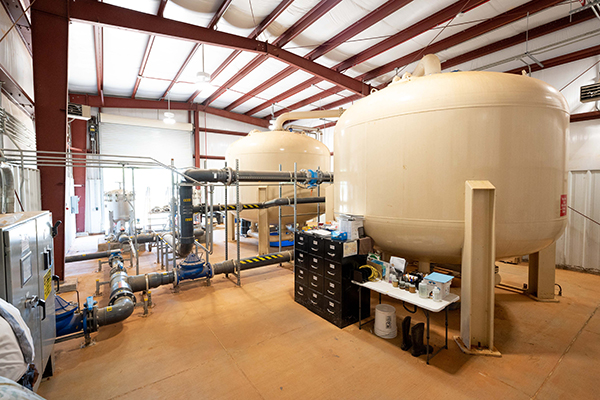
Investigating Emerging PFAS Destruction Technologies
Following recent interim guidance from the Department of Defense on how military organizations are to handle the destruction and disposal of PFAS, developing technologies that target the destruction of these forever chemicals hold possibilities for effective and efficient removal.